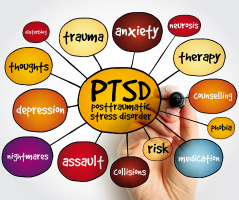Can generative AI assess PTSD? A clinical validation study of transcribed and direct audio input modalities

Artificial intelligence (AI) has become increasingly prevalent across multiple domains.1 2 In healthcare, generative AI has been evaluated for its potential in clinical applications.3 4 Example applications include disease detection, support for the application of mental health interventions and patient education in clinical contexts,5 6 though careful consideration is needed regarding their role in clinical scenarios.5 For instance, past research demonstrated that generative AI performed well in diagnosing appendicitis, achieving diagnostic accuracy of up to 82%, but struggled with more complex conditions like pancreatitis and diverticulitis.7 Also, a recent study has shown that zero-shot large language models can perform clinically meaningful phenotyping of postpartum haemorrhage without annotated training data.8 While healthcare practitioners, including psychiatrists, are increasingly using generative AI for clinical questions and documentation,9 professional organisations like the American Psychiatric Association urge caution in their clinical application.10 Considering their increasing adoption in clinical settings, rigorous investigation of these tools is crucial to evaluate their utility in clinical decision-making while ensuring proper data protection.
)
)